Does your home feel stuffy or smell musty sometimes? That stale indoor air could be coming from your HVAC system. Most people don’t realize their heating, ventilation and air conditioning (HVAC) unit can impact their health and well-being. But it’s true – a dirty or improperly maintained HVAC system can circulate dust, mold, bacteria and other contaminants throughout your home’s air. Over time, breathing in this kind of poor indoor air quality can lead to some serious health effects.
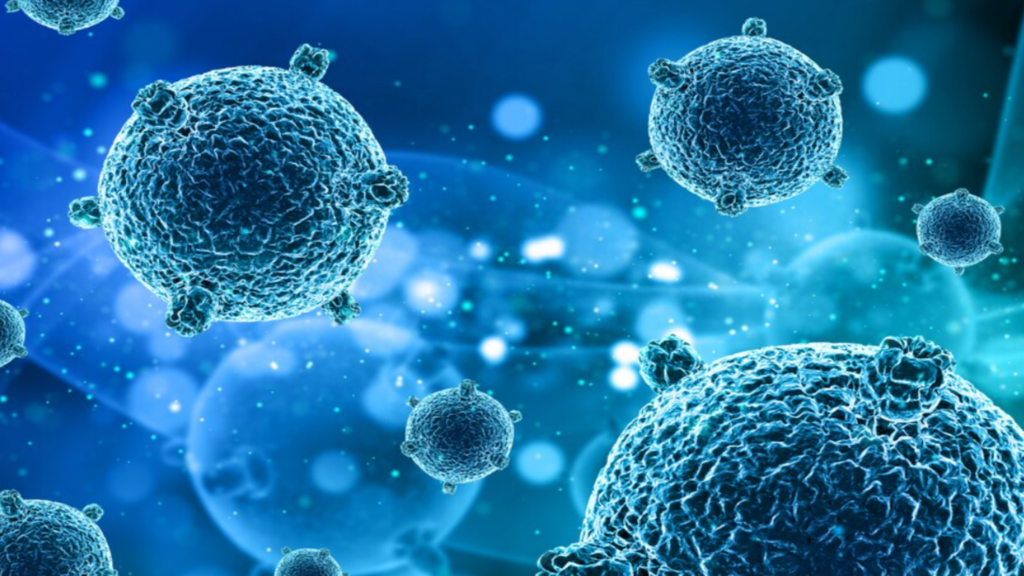
In this article, we’ll explore how your HVAC system works, how it can affect the air you breathe, what health problems it can cause, and how to keep your unit clean for better health. You may be surprised to learn just how much your HVAC system’s maintenance routine impacts your family’s health and comfort. Read on to learn more!
How HVAC units Work
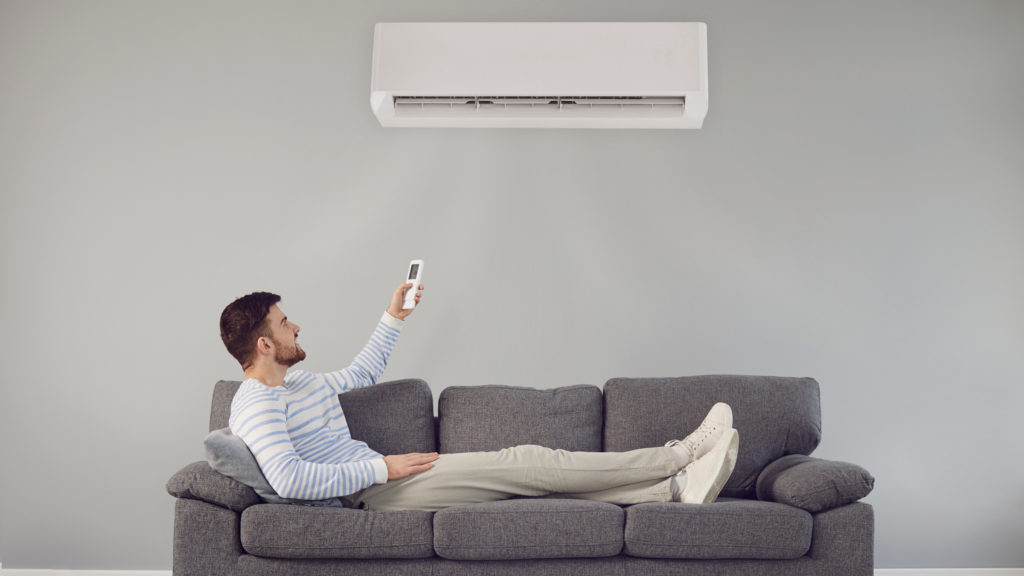
Your HVAC (heating, ventilation, and air conditioning) system is responsible for regulating the temperature, humidity, and air quality in your home. At its core, an HVAC system consists of two main components:
The heating system, which includes a furnace, heat pump, boiler, or other heating device. This heats air within the system and circulates it throughout your home.
The air conditioning system, which includes an air conditioner or evaporative cooler. This cools and dehumidifies the air.
Your HVAC system also includes a series of ducts that distribute the heated or cooled air from your HVAC components to different rooms in your home through vents. The return ducts bring air back to your HVAC unit to be re-conditioned.
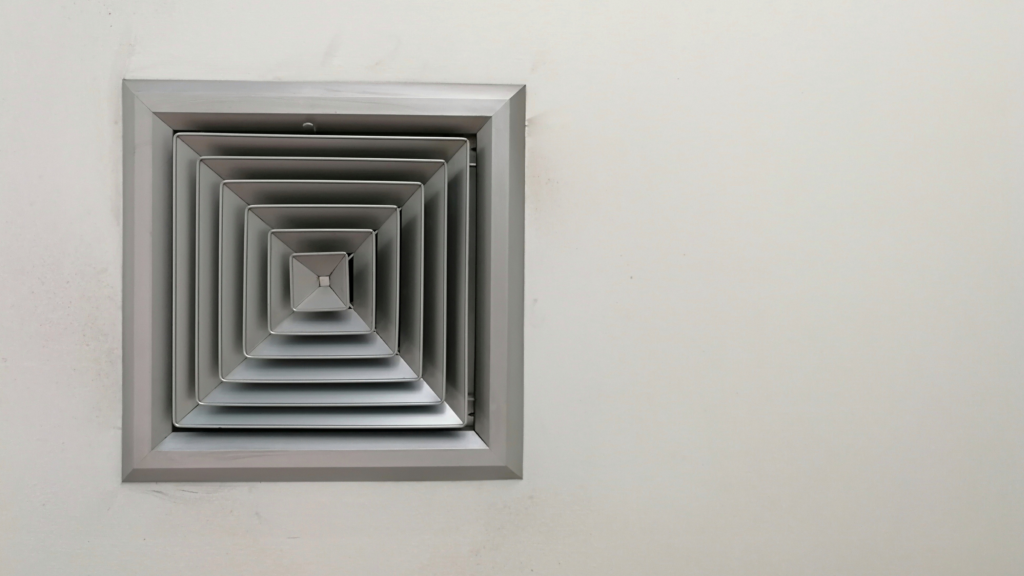
Within your HVAC unit, a blower motor powers the circulation process. It pulls air in through return vents, pushes it past heating and cooling elements, then pushes the conditioned air through supply ducts and out vents into your home. Filters help clean debris and particles out of the circulating air.
How a Dirty HVAC Unit Affects Indoor Air Quality
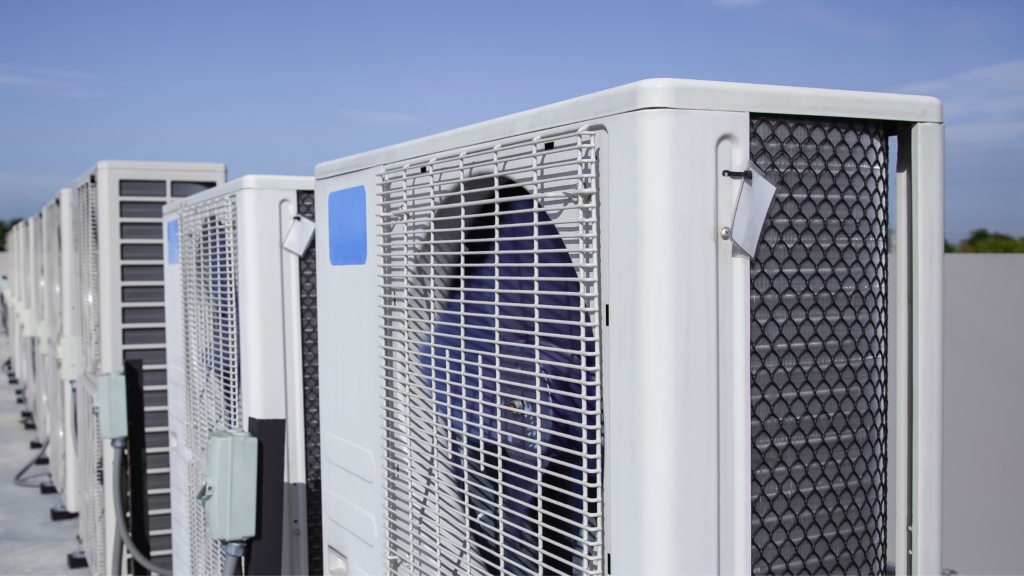
Your HVAC system acts as the lungs of your home, continuously circulating air throughout your house. Unfortunately, the components of your system like the air ducts, coils, and filters become filled with contaminants over time. As air passes through your HVAC system, it picks up and spreads pollutants like:
Dust- HVAC systems act like gigantic dust traps! Pet dander, dust mites, fabric fibers, and soil particles get sucked into the system through return vents. Then this dust gets blown back into the air you breathe. People with dust allergies can have reactions from dirty system dust.
Mold- Wet, humid conditions promote mold growth. Mold spores get pulled into the HVAC system and spread through the whole house. Mold causes allergic reactions and asthma flare-ups. Some dangerous varieties like black mold can even cause lung infections.
Bacteria- Bacteria and biofilms collect in condensation pans and humid air ducts. These germs circulate into the air you inhale, leading to increased illness.
Poor Filtration- When air filters become clogged with dirt and debris, airflow is restricted. This causes increased strain on the HVAC motor. But more importantly, home pollutants bypass the filter and get blown back into your home environment. Without proper filtration, your indoor air contains higher levels of dust, dander, pollen, and other allergens.
Health Problems Caused by Poor Indoor Air Quality
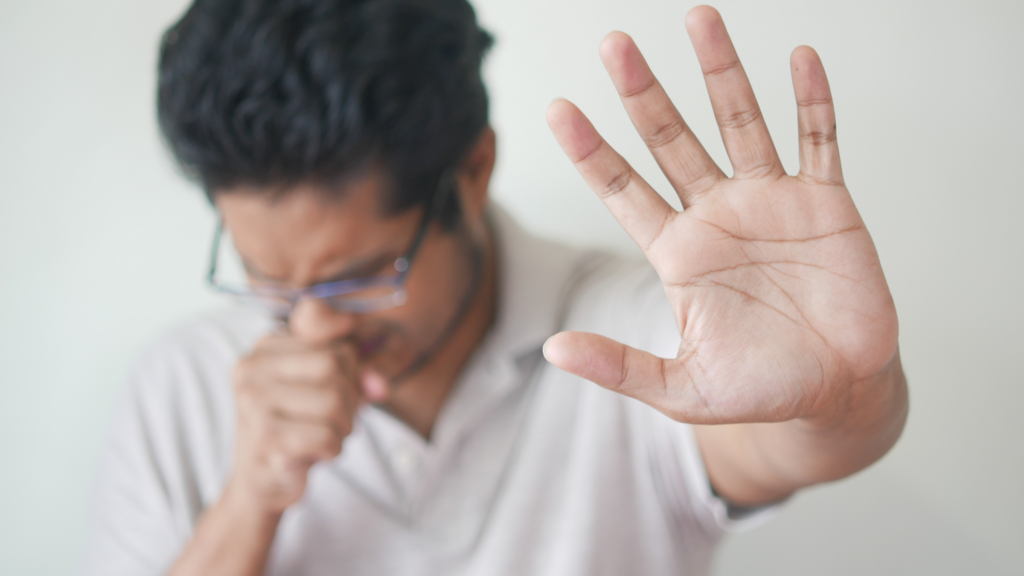
Respiratory issues are one of the most common health effects of poor indoor air quality. Dust, mold, and pollen in the air can irritate the lungs and airways, leading to coughing, wheezing, shortness of breath, and worsened asthma symptoms. Those with chronic lung diseases like COPD are especially susceptible.
Allergies and asthma can also flare up when your HVAC system circulates allergens like pollen, pet dander, dust mites, and mold spores through your home. This leads to symptoms like sneezing, coughing, congestion, rashes, and sinus irritation in those sensitive to certain allergens.
A dirty HVAC system can also affect your immune system’s ability to fight off viruses and infections. Reduced air circulation and higher humidity promotes the growth and spread of bacteria, viruses, and mold. Those with weakened immune systems like the elderly, children, and those with chronic illnesses need clean indoor air the most.
Signs You Need an HVAC Cleaning
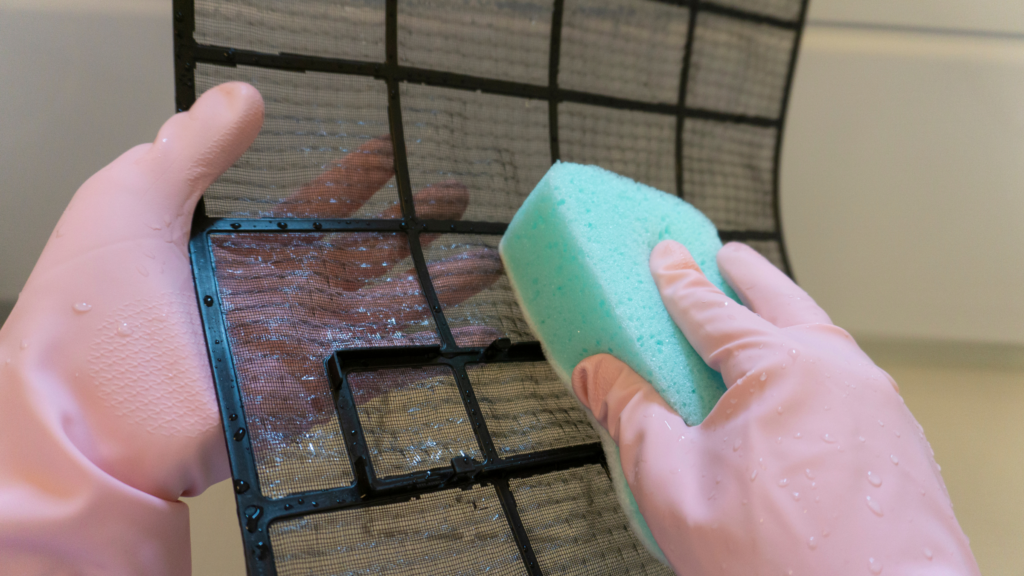
A dirty HVAC system can cause poor indoor air quality which harms health. Here are some signs it may be time to have your HVAC professionally cleaned:
Musty Smells – If you notice odd or unpleasant smells when the HVAC turns on, like a musty or moldy odor, the ducts likely have built up dirt, dust and debris over time. This can breed mold and bacteria which gets blown into the home’s air.
Increased Dust – Excess dust around vents or on furniture when the HVAC runs can mean the ducts are full of dust that is getting blown out. Any debris in the HVAC system will lead to dust.
Respiratory Issues – Allergies, asthma, recurrent colds or congestion may arise or worsen due to contaminated indoor air from a dirty HVAC system. Pathogens and irritants get circulated through the home.
Frequent Sickness – When a HVAC system is laden with dust, mold and bacteria, it can cause repeated bouts of illness for occupants as these contaminants spread through the air ducts. Persistent coughs or infections may be a red flag.
High Energy Bills – A build up of dirt, dust and debris causes the HVAC system to work harder to heat and cool the home properly. This leads to higher energy usage and bills. A clean system runs more efficiently.
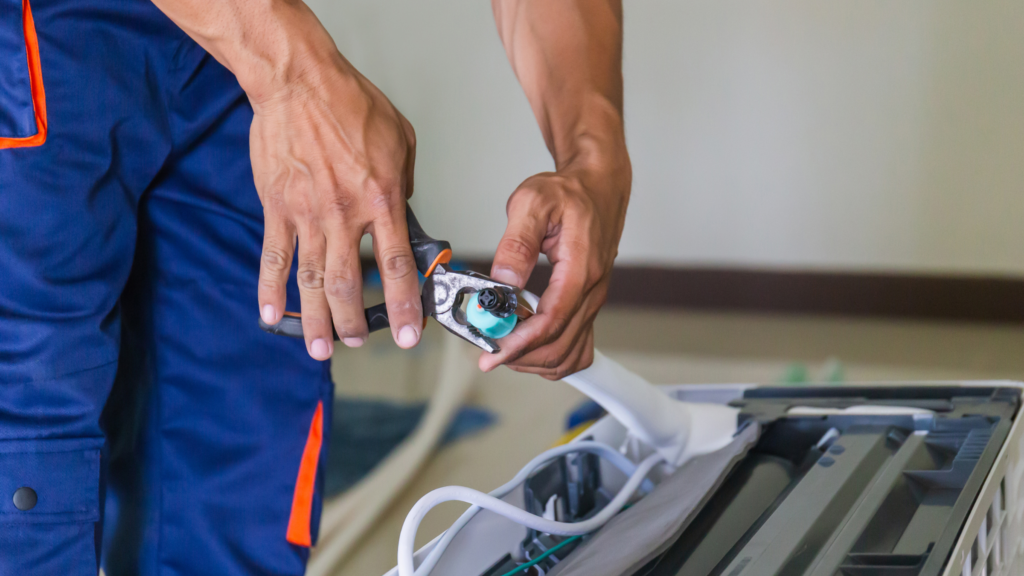
If any of these issues are occurring, inspect the HVAC unit and vents and consider having a professional deeply clean the system. This can improve indoor air quality and protect the health of occupants.
Benefits of a Clean HVAC Unit
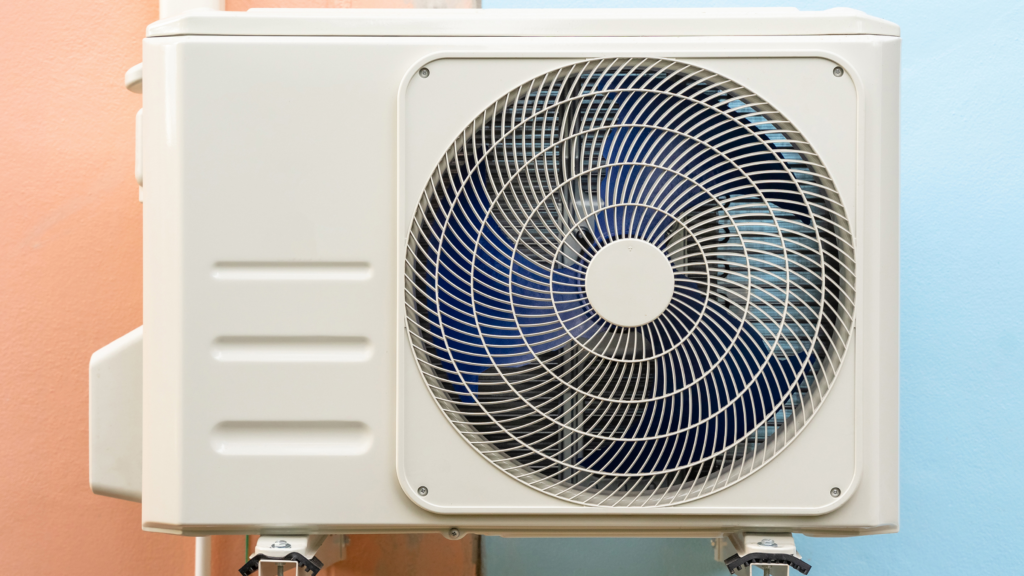
Keeping your HVAC system clean provides some great benefits for your health and home. Here are some of the top reasons to make sure your HVAC system stays clean:
Better Air Quality – Dust, dirt, mold, and bacteria can build up in an HVAC system over time. Cleaning your HVAC removes these contaminants, leading to cleaner indoor air. With better air quality, you’ll breathe easier and experience less irritation.
Reduced Allergens and Irritants – For people with allergies or asthma, a dirty HVAC system can trigger reactions by spreading pollen, pet dander, and other allergens through your home. Proper cleaning helps capture these particles before they reach the air you breathe.
Fewer Respiratory Problems – Poor indoor air quality from a contaminated HVAC system has been linked to some respiratory illnesses like chronic coughs, pneumonia, and bronchitis. Keeping your system clean helps prevent these health issues.
Increased Energy Efficiency – Dust and dirt buildup in an HVAC system can reduce airflow and make the system work harder to heat or cool your home. Cleaning improves efficiency, so your unit doesn’t have to run as much, saving you money on energy costs.
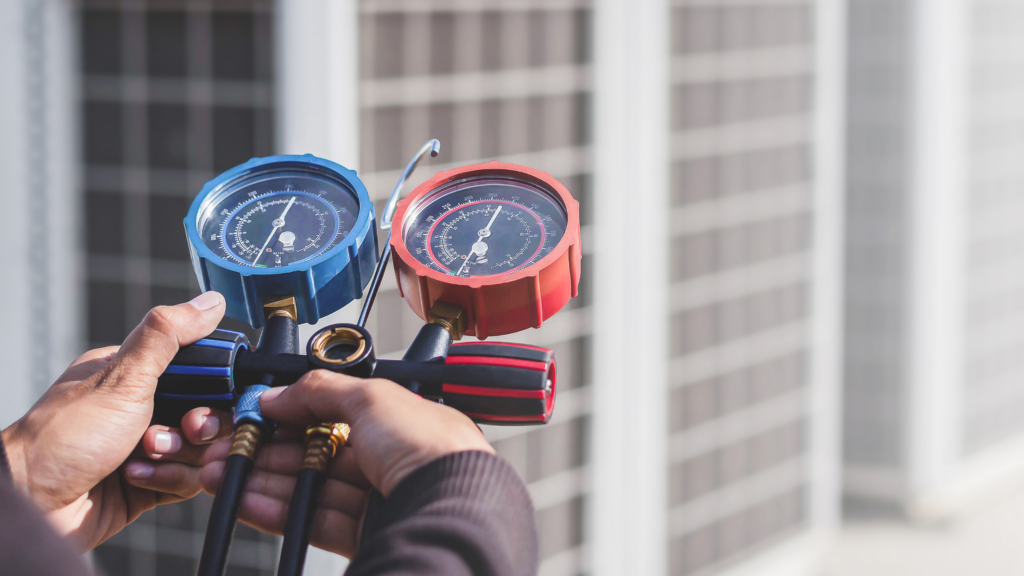
The bottom line is that a clean HVAC system circulates cleaner, healthier air through your home. For better indoor air quality, fewer allergy flare-ups, increased comfort, and energy savings, be sure to keep your HVAC system well maintained and cleaned regularly.
Tips to Maintain a Healthy HVAC System

Your HVAC system plays an important role in your indoor air quality. Here are some tips to keep your system running cleanly and efficiently:
Change filters regularly – HVAC filters trap dust, dirt, pollen and other particles from circulating through your home. Experts recommend changing your filters every 1-3 months. If you have pets or allergies, you may need to change them more frequently. Be sure to use filters with a MERV rating of 8 or higher.
Have system professionally cleaned annually – In addition to changing filters, have a technician perform a thorough cleaning and inspection of your entire HVAC system once a year. They can clean the air ducts, coils, burner assembly, blower and other components. This removes built-up debris and prevents it from re-circulating.
Ensure good airflow – Make sure vents aren’t blocked by furniture or objects. Leave closet and bedroom doors open to allow air to freely flow. Check for crushed or kinked ductwork that needs repair. Good airflow means your HVAC doesn’t have to work as hard.
Check for mold/mildew – High humidity promotes mold growth in HVAC systems. If you notice musty odors or see visible mold, have your ductwork thoroughly disinfected by a professional. Left untreated, mold spores get blown into the living space and can cause health issues.
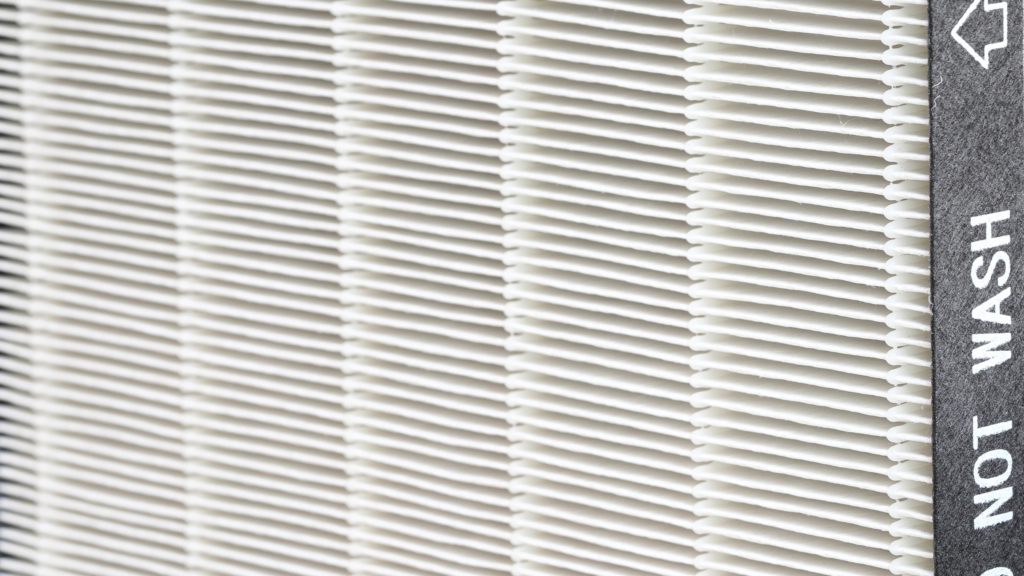
Following these simple maintenance steps will keep your HVAC unit clean and operating at peak performance. The small effort is worth it to protect your indoor air quality and your family’s health.
When to Call a Professional
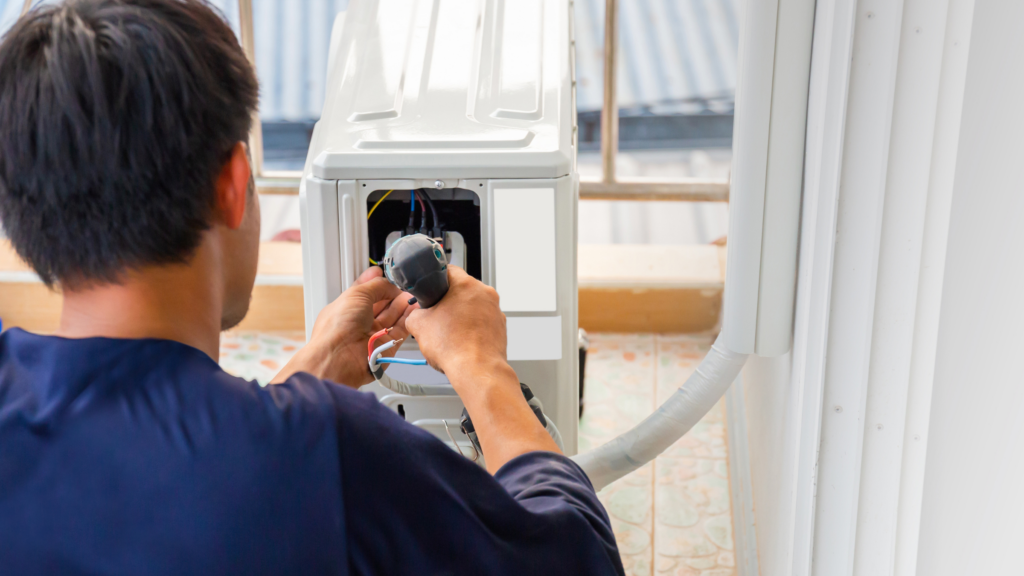
It’s important to know when it’s time to call in an HVAC technician versus when you can handle some DIY maintenance yourself. Here are some signs it’s time to let the pros take over:
Your HVAC system is over 10 years old. HVAC systems have a typical lifespan of 10-15 years. Once your system crosses that 10 year mark, it’s a good idea to have a professional inspect it annually to keep it running efficiently and safely. They may recommend replacements or upgrades.
You hear strange noises coming from the unit. Unusual noises can indicate a bigger underlying issue like a failing fan motor or refrigerant leak. Only a technician has the skills to diagnose the problem and make repairs.
Your energy bills are suddenly much higher. If your bills have spiked for no clear reason, your HVAC system may be operating inefficiently. A technician can pinpoint the problem, like a refrigerant leak or dirty air filter. Fixing it could save you hundreds on bills.
You notice uneven cooling or heating. Hot and cold spots throughout your home usually mean your HVAC system needs repair and better balancing. Let the pros handle this one.
Your system frequently shuts off unexpectedly. Frequent shutdowns likely signal a problem with the controls, thermostat wiring, sensors or refrigerant charge. It takes training and the right tools to troubleshoot.
There are recurring issues like frozen coils or condenser leaks. Persistent issues require specialized expertise to find the root cause and permanent solution. Don’t put up with the hassle – call for professional service.
Your home has poor indoor air quality or humidity levels. Improper ventilation, excess moisture and stagnant air can all signal issues with your HVAC. Diagnosing and fixing the problems maintaining healthy air requires pro skills.
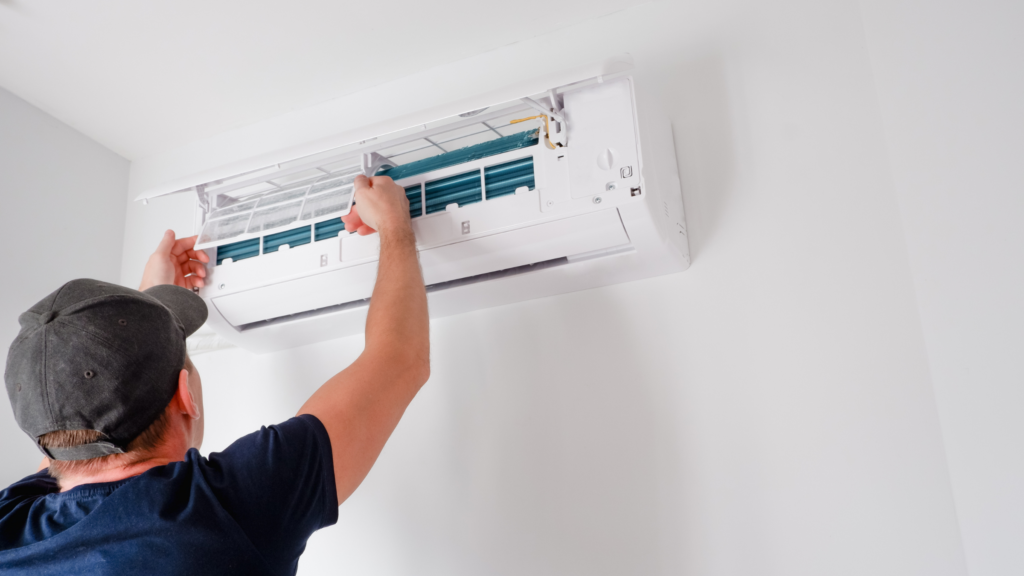
Knowing when to call the experts ensures your HVAC system runs safely and efficiently for years to come. It also prevents wasted time and money on DIY repairs that may not properly fix the underlying issue. Don’t hesitate to pick up the phone at the first sign of major trouble.
Conclusion
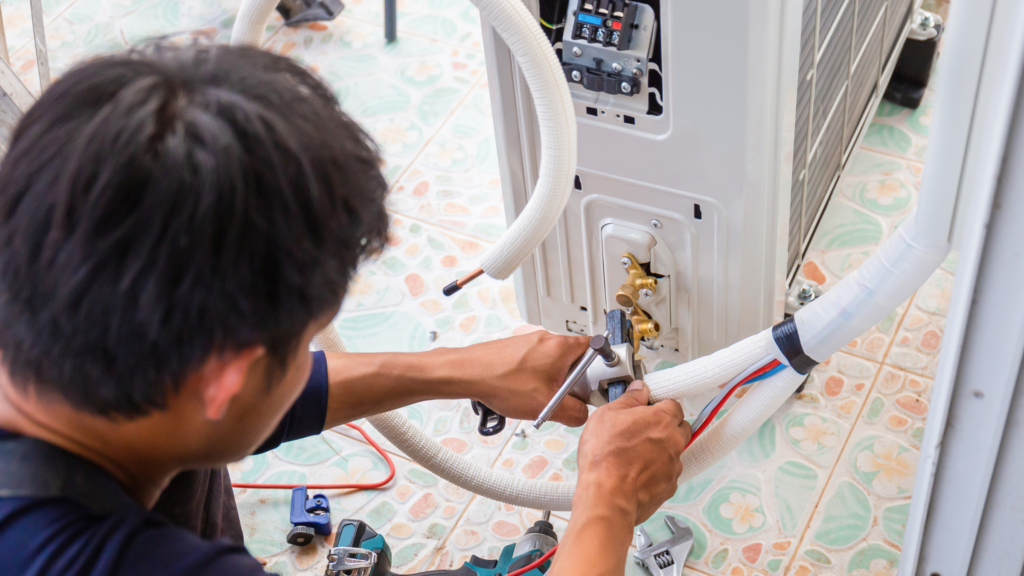
Your HVAC system is essential for providing a healthy indoor environment. By circulating and filtering the air, your HVAC system removes pollutants and regulates humidity levels. But over time, dust, dirt, mold and allergens can accumulate and get dispersed through your home’s ductwork, leading to poor indoor air quality.
Poor indoor air quality from a dirty HVAC system can cause a variety of health problems like asthma attacks, allergies, respiratory infections and headaches. Pay attention to signs like reduced airflow, musty odors, and increased humidity levels, which indicate your HVAC system needs cleaning.
Protect yourself and your family by making HVAC maintenance a priority. If you think that your HVAC system needs a tune-up, contact one of our expert energy advisors and they will help you schedule a service appointment. Additionally, you can download our new customer service app on the Apple Store or Google Play Store for additional resources that can help you resolve any issues you might encounter with your unit.
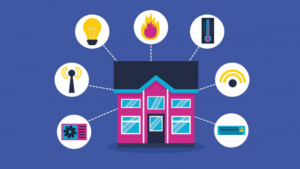
HVAC Glossary: Common HVAC Terms You Need to Know
Discover essential HVAC terms in this guide: heating, ventilation, AC, thermostats, furnaces, heat pumps, ductwork—ideal for new homeowners.
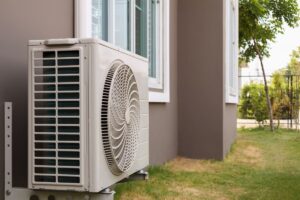
How to Pick the Best HVAC System for Your Household
We explore how to choose the best HVAC system for your household, discussing things like home size, HVAC type, and cost requirements.
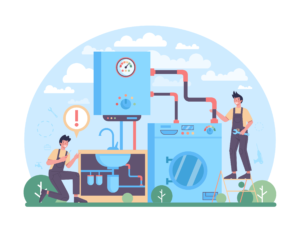
What is HVAC?
Combining heating, cooling, and ventilation into one harmonious system for indoor space, HVAC systems work to keep your home cozy and inviting

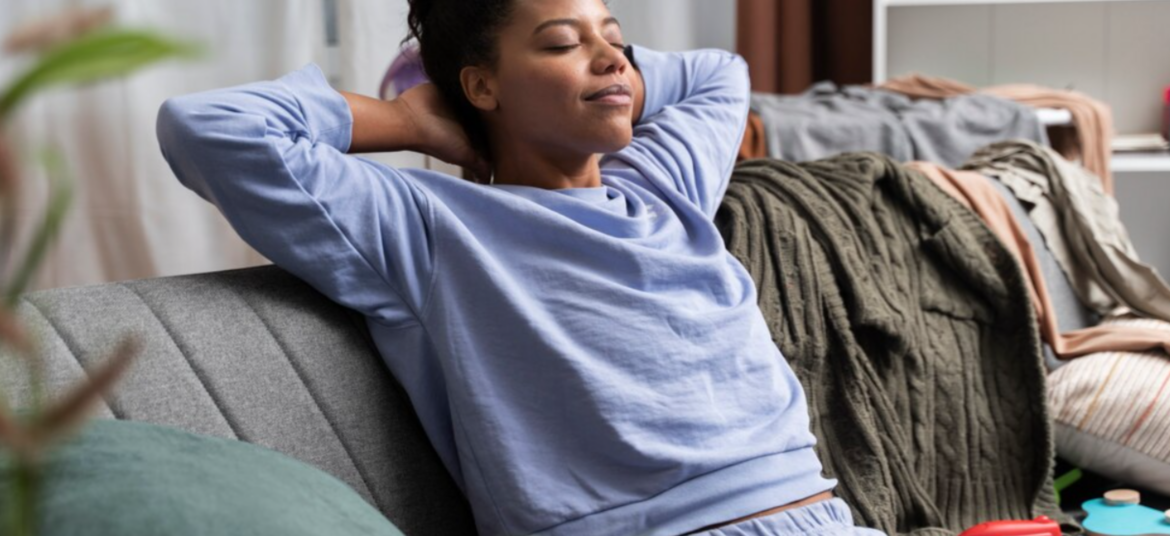
No Comments